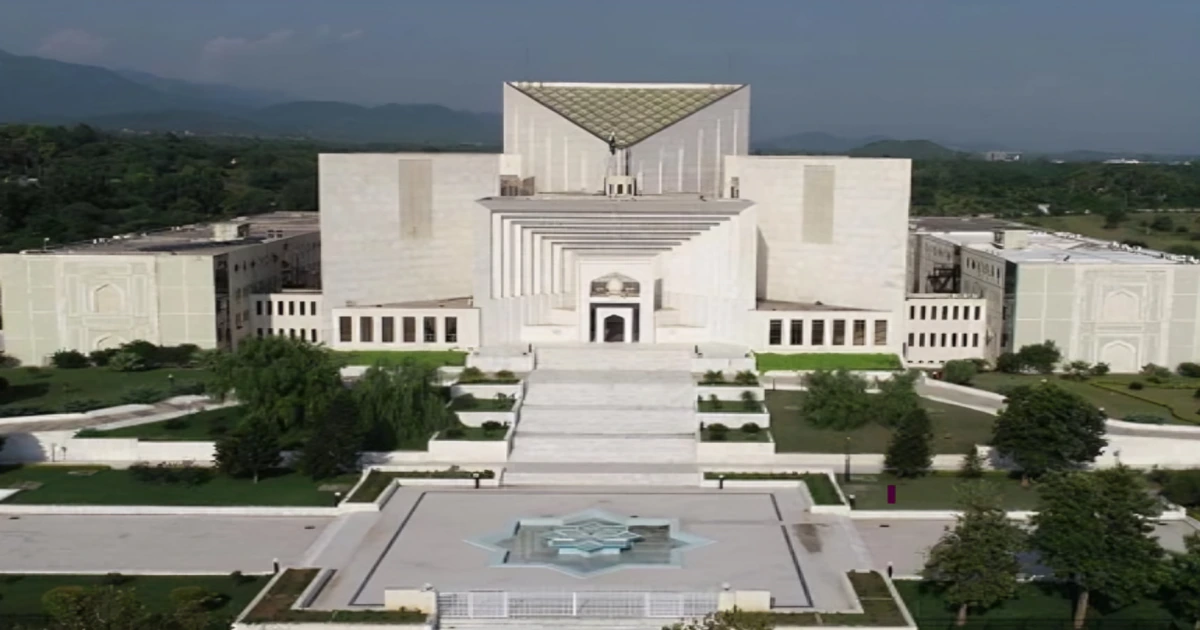In recent months, Pakistan has been embroiled in a heated political debate over proposed constitutional amendments that could significantly alter the balance of power between the judiciary and the political executive. The amendments, backed by Prime Minister Shehbaz Sharif’s government, have sparked fierce opposition from the Pakistan Tehreek-e-Insaf (PTI) party and raised concerns about the future of judicial independence in the country. Here’s a closer look at the proposals, the political dynamics in play and why the opposition has rejected these changes.
What Are the Proposed Amendments?
The proposed constitutional amendments, referred to as the “Constitutional Package,” focus largely on reshaping the judiciary’s role in Pakistan. Among the more than 50 proposals, some key changes include:
- Creation of a Federal Constitutional Court
A new Federal Constitutional Court would be established alongside the existing Supreme Court. This new court would handle petitions specifically related to constitutional matters, taking on a role that the Supreme Court currently holds. - Judicial Appointments
Judges for the proposed Constitutional Court would be appointed by the president of Pakistan on the recommendation of the prime minister, bypassing the Judicial Commission, which currently handles appointments to the Supreme Court. This has sparked fears of political influence over judicial appointments. - Extended Retirement Age for Judges
The retirement age for judges serving on the Constitutional Court would be extended to 68 years, compared to the 65-year retirement age for other judges. Additionally, judges in this court would be subject to a term limit of three years. - Reversing a Key Supreme Court Ruling
Another notable amendment aims to overturn a controversial 2022 Supreme Court ruling that prevented legislators from voting against their party line. If passed, the new amendment would allow legislators to vote freely, defying their party’s directives.
Political Dynamics and Parliamentary Numbers
To pass these constitutional amendments, the government needs a two-thirds majority in both houses of parliament. In the National Assembly, this means securing at least 224 votes, while 64 votes are required in the Senate. However, Prime Minister Shehbaz Sharif’s coalition government currently falls short in both houses, despite attempts to win support from the Jamiat Ulema-e-Islam–Fazal (JUI-F) party.
With 214 votes in the National Assembly and 57 in the Senate, the government remains just a few votes shy of the necessary majority. Legislators from the governing coalition remain optimistic, but opposition parties, particularly the PTI, have voiced strong disapproval.
Opposition Concerns: Targeting the PTI and Judicial Independence
Imran Khan’s PTI has been one of the most vocal critics of the proposed amendments. The party has labeled them as “unconstitutional” and accused the government of trying to undermine judicial independence by establishing a politically-controlled court. PTI leaders argue that the new Constitutional Court could be used to target their party, with concerns that the court would be handpicked to rule against Khan and his party in critical legal battles.
One particular concern raised by PTI leaders is that the government is attempting to position Chief Justice Qazi Faez Isa as the head of the proposed Constitutional Court. They fear this would give the government significant control over decisions relating to constitutional issues, including the banning of political parties and other politically sensitive cases.
Experts Weigh In: Shifting Power Dynamics and Military Exemptions
Legal experts and political analysts have also expressed concerns about the amendments. Some argue that the proposals could weaken the Supreme Court by transferring significant powers to the newly proposed Constitutional Court. For example, the court could take on cases involving the federal government, provincial governments, and the banning of political parties—areas that are currently under the jurisdiction of the Supreme Court.
Political analyst Benazir Shah notes that the timing of the proposals, with the current chief justice set to retire soon, has raised suspicions that the government is attempting to manipulate the appointment process. She also highlights that the amendments may provide the military with an exemption from judicial scrutiny, preventing high courts from passing judgments against military officers in matters of national security.
FAQ About Pakistan’s Controversial Constitutional Amendments
What are the key amendments being proposed?
The amendments propose the creation of a Federal Constitutional Court, changes to the judicial appointment process, an extended retirement age for judges in the new court, and the reversal of a Supreme Court ruling on party-line voting.
Why is the opposition against the amendments?
The opposition, particularly the PTI, argues that the amendments threaten judicial independence by giving the political executive too much influence over the judiciary. They also fear the changes could be used to target opposition parties, including Imran Khan’s PTI.
What does the government need to pass these amendments?
The government needs a two-thirds majority in both the National Assembly (224 votes) and the Senate (64 votes) to pass the amendments. However, they currently lack the required number of votes.
Could these amendments affect the Supreme Court’s power?
Yes, if passed, the amendments would transfer significant judicial powers from the Supreme Court to the newly proposed Constitutional Court, potentially weakening the Supreme Court’s authority.
Why are some analysts concerned about military exemptions in the amendments?
The proposed amendments reportedly include provisions that would prevent high courts from ruling against military officers in matters of national security, raising concerns about the military’s continued influence and lack of accountability in Pakistan.
The debate over these amendments has sparked concerns about the future of democracy and judicial independence in Pakistan, as political tensions continue to escalate. The coming weeks are likely to be crucial in determining whether these controversial changes will come to pass.
